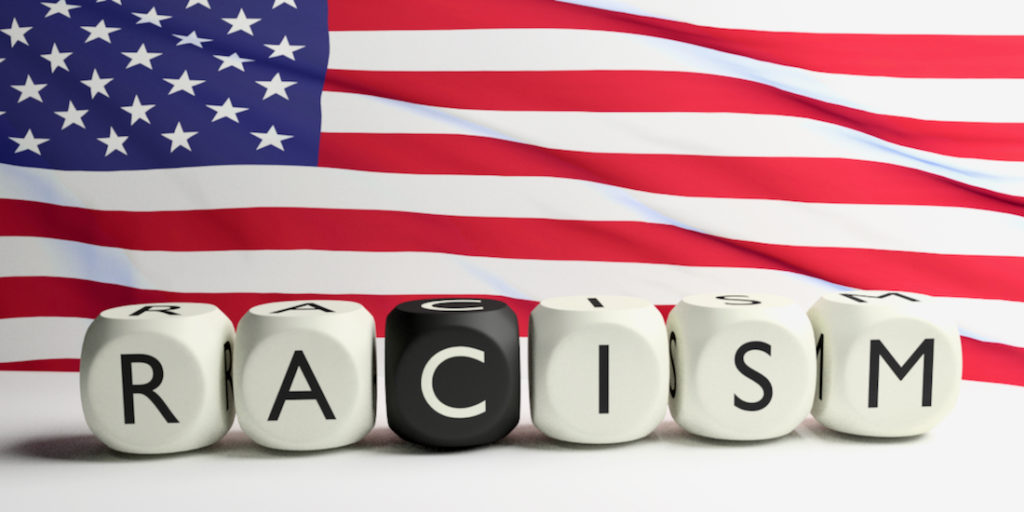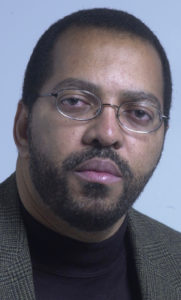
We begin this series on racism with a first-person account by former Virgin Islands resident and Pulitzer Prize-winning reporter Melvin Claxton. Other stories will retell the experiences – some harrowing – of a cross-section of Virgin Islanders who encountered racism on the U.S. mainland. The stories are intended to educate and inspire action to address this urgent issue.

Asking a person of color if they have ever experienced racism in America is like asking someone if they were ever caught in the rain. The answer is invariably yes, though the degree of exposure may vary from a drizzle to a downpour.
As a journalist, I have experienced racism from many angles. I have observed it through stories told to me, in court filings and reports, and more intimately, by personal experience.
Sometimes racism is hard to discern. Other times it’s painfully obvious. But always – because of its inherent unfairness – it is galling and enraging.
Growing up in my native Antigua, a predominately black community, racism was more of a theoretical discussion often linked to nationalism and neocolonialism. The police, courts and government were Black run. Any abuse or miscarriage of justice inflicted by these institutions was motivated by politics and personal animus, not race.
In America, it is the reverse; race often trumps politics or class. It is an unerasable birthmark that too often pre-determines your treatment by institutions of power. While racism in policing often grabs the headlines, the problem permeates every aspect of American life.
In 1995, two years before I moved to the U.S. mainland from the Virgin Islands – my home for 17 years – I had a brush with the pervasive nature of American racism. It began with a simple banking transaction.
While visiting my family in Atlanta, I received a check from the Inter American Press Association for an award I was given. It was a relatively small check –$1,000 – drawn on First Union bank, now part of Wells Fargo. I called a local branch and was assured I could cash the check with a valid V.I. driver’s license.
When I showed up at the bank, things got complicated. After I gave the teller the check, he left his station and went into a back room. He didn’t come back for 22 minutes. When he finally returned, he handed me the check.
He said he couldn’t cash it because the fax machine was down and he was unable to verify the signature on the check. Puzzled, I asked if it was customary to verify all signatures on checks of that amount.
He said no, but the memo line on the check indicated it was for a journalism award. Apparently, his supervisor, a White woman, questioned how I obtained the check.
I asked to speak with his supervisor and she appeared, informing me the bank would not cash the “suspicious” check and if I didn’t leave she would call the police. Clearly, she concluded that a bearded Black man with a Caribbean accent could not possibly be an award-winning journalist. She assumed her threat to summon the police would send me fleeing.
I encouraged her to call, adding that I would make a few calls of my own and alert the local media that her bank was refusing to cash the check of a Pulitzer Prizing-winning reporter because he was Black. My mention of a Pulitzer, charge of racism and threat to call the local media brought the branch manager from his office. He quickly initialed the check and I was handed my money.
When the manager initialed the check, he said something revealing. He advised me against taking the bank’s actions “personally,” as if I should draw comfort from the fact that racism is a broad brush that paints all Blacks equally.
But the bank incident pales in comparison with what happened on a dark highway outside Murfreesboro, Tennessee, on a chilly December morning in 2013. That incident – and thousands like it across the country – prove false the claims by police apologists that only Blacks committing crimes need fear the law.
My son and I were driving through Murfreesboro on our way to Nashville around 1:30 a.m. when we pulled over to check a rattling noise from the undercarriage of our rental vehicle. As we inspected the SUV for damage, we saw a police car headed in the opposite direction. The car slowed, but never stopped to offer help or see if we were OK.
We assumed the officer didn’t stop because there was no visible sign of damage to the vehicle. But less than five minutes later, while I was on the phone with the rental car company, six squad cars with flashing lights appeared. We suddenly found ourselves surrounded by at least 11 aggressive, fully armed officers.
The officer in charge approached us as the others fanned out as if to ensure they weren’t in each other’s line of fire. Instead of coming to our assistance, the cop who initially spotted us had called for backup. He deemed two Black men inspecting their car enough of a threat to enlist the aid of 10 fellow officers.
My son and I, through no fault of our own, now faced a volatile, dangerous situation. I understood two simple truths. We were in danger, and if we got shot the officers were likely to get away with it. Such is the nature of American racism.
The officer asked for our identification and was belligerent as he questioned us. I knew the drill. As Black men we are constantly asked to justify our existence, to explain our presence even in the most innocuous of places.
Three officers, their hands never far from their guns, surrounded the SUV. Soon we were fielding questions about the computers and other equipment we were carrying. They wanted to know where we got them and if they were stolen. We were now being asked to prove our innocence of a crime no one had reported.
I explained that I ran a video game company that made the world’s largest Bible knowledge game and was headed to a national church convention, where I was a keynote speaker. At least two officers snickered openly in disbelief.
Things intensified when the officers asked to search the vehicle. I knew they had no legal right to. I also knew they were looking for a reason to escalate the situation. I had no intention of letting them. Instead, I played my ace, one not every Black person has.
I told them something that clearly shocked them. That I was the former senior investigative reporter with the largest newspaper in Tennessee. That I was astounded so many officers responded so quickly to a non-criminal situation when Murfreesboro residents had complained for years about slow police response times.
They appeared caught off guard. Yet not a single cop left the scene.
It was only after I asked if the color of our skin had anything to do with their presence that I sensed the tension begin to dissipate. They said no, but their quick response time, large numbers and confrontational questioning convinced me otherwise.
I still remember my rage. My son and I were placed in unnecessary danger because an officer saw two Black men at the side of the road and assigned criminality to our presence. Had the encounter gone sideways, we could have died for no other reason than the color of our skin.
I was also bothered that during the entire unjustified incident, not one officer tried to de-escalate the situation or spoke in dissent of the combative tactics. That is a pattern we have seen time and again in police-related killings.
So when I hear apologists say police racism stems from a few bad apples I know better. It’s an entire blighted orchard.
Editor’s Note: Melvin Claxton is a Pulitzer Prize-winning journalist whose series on the Virgin Islands crime won the V.I. Daily News a public service Pulitzer. He is a former national investigative reporter with the Chicago Tribune and Detroit News. He is currently the senior managing partner at Epic 4D LLC, an educational video game company.





